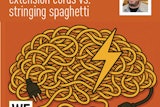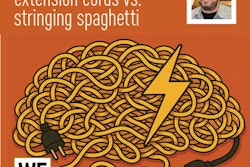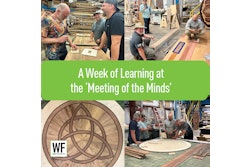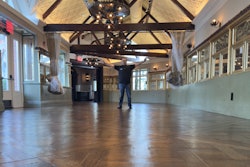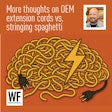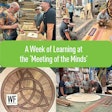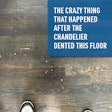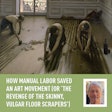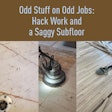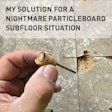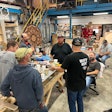If you think education is expensive, what do you figure the going rate for ignorance is? Or, do you think no one will notice when you are faking it? The "good" news is that most of your customers are very poorly informed and won't know if your information is not correct. So if everyone uses the same incorrect information, who will notice? My intent in writing this blog is to challenge some of the mythology regarding wood flooring that has been incorporated into the collective consciousness of the wood flooring industry and to share some excellent sources of basic knowledge. But I will start with the warning that you should not believe anything unless you truly understand its basis in knowledge. With technical and scientific knowledge, this means that you need to understand the physical world described by physics, chemistry, biology, botany, and math.
An important part of understanding the knowledge is the words that comprise the vocabulary of every profession, skill, or specialty. Where it is feasible, it is best to avoid reinventing the wheel with regard to terminology. It is especially useful to bring terms from the basic fields of science into our specialty to build a bridge into the basic knowledge and establish a direct link with our specialty and what we can prove. Does this mean that everyone needs to become a physicist? No, but we should respect the terminology that describes the physical world and not invent our own mock science to describe what goes on around us.
So, here we go. Wood "shrinks" and "swells" when it loses and gains moisture content… like that fancy wool sweater that you should not have put in the dryer at the high heat setting. The words "expand" and "contract" generally refer to dimensional changes that occur due to changes in temperature. Although very similar in meaning to swell and shrink, it is not technically correct. The Wood Handbook is the one of the best sources for information about wood that is technically accurate. It is published by the Forest Products Laboratory in Madison, Wis. Better yet, it's free if you have a computer with Internet access. It is a technical book that requires some understanding of basic science and math. It also contains almost all of the fundamental knowledge about wood and lumber that professionals would need for their entire career. If you are only going to have one book in your professional library, make it The Wood Handbook.
The wood floor bidness has developed some less-than-accurate habits over the years with the words we use to describe wood and how it works. We are not disciplined about using technical words. And using the correct words is a great habit to develop, because it greatly limits misunderstanding. Misunderstanding can easily transition into differences of opinion, which can easily transition into disagreements, which can easily transition into disputes and problems. Disputes and problems are bad for business, which wastes a great deal of our mental energy and material resources. Distractions that you enjoy are called hobbies, while distractions that are not enjoyable are called problems. It makes no sense to cultivate any hobbies that are not enjoyable . So when you refer to dimensional changes related to changes in moisture content, please use the magical words "shrink" and "swell".










